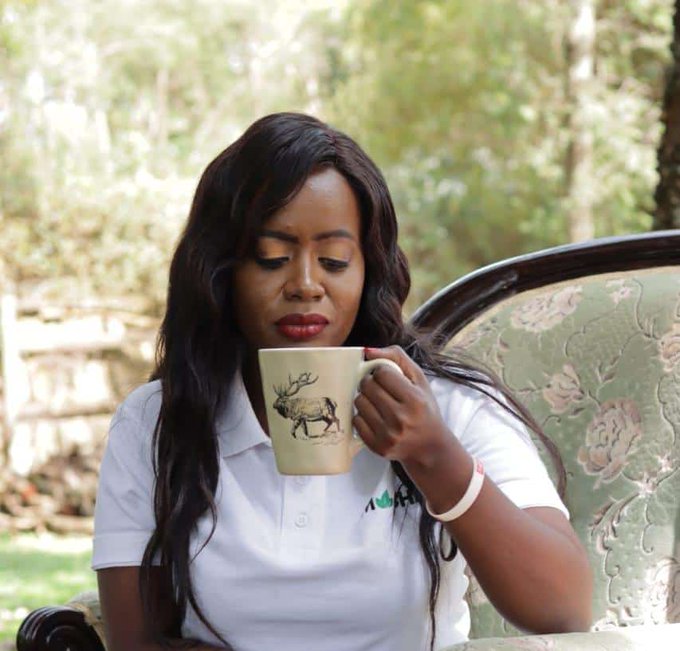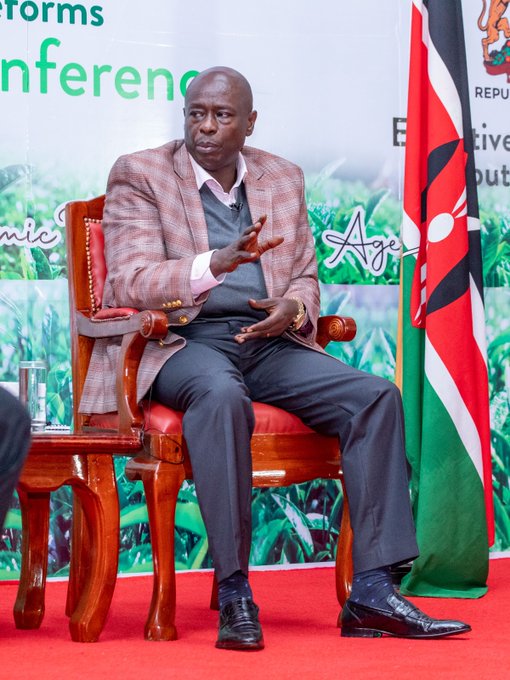NANDI, Kenya – In almost every part of the country, tea harvesting has historically been done by hand, particularly by smallholders.
However, the majority of large-scale tea producers have recently begun to adopt the usage of updated machinery.
Mchai is the creator of the machine, a new portable, brushless, waterproof tea harvester.
Black tea’s chemical quality criteria vary depending on how it is harvested, and the 1.7 kg tea harvester significantly increases harvest tea’s operational efficiency, according to Eng Ben Lang, CEO of Mchai.
“This is an upgraded model. We designed it this way because we noticed that our farmers, who were very important people in our economy, were spending a lot on farm inputs. The cost of harvesting tea using hands, like in Central Kenya, is Sh13 per kill, while in other regions, it is Sh8. So, we thought that since a big machine harvests tea, we could devise a smaller one to help them save on this,” explained Lang.
What you need to know about how the MChai’s portable machine operates
During an illustration of the machine in several tea farms in Nandi County, Lang told Y News that most farmers own small parcels of land and cannot afford big harvesting machines.
“It is powered by a 1.7 kg battery carried on the back. The battery can power the machine for between six (6) and eight (8) hours, depending on the kind of job someone is doing,” added the CEO.
Lan observed that the mini brushless mini tea harvester is waterproof, light in weight, has smart circuit protection, and has a sizeable tea-collecting tray.
“It is also worth noting that the machine does not produce any noise while in use. The lithium battery is charged by power,” said Lan, adding that the machine plucks tea with a similar quality as the hand.
“Pruning and sieving help put the leaves on the same level. The machine increases the average plucking with a net decrease in the cost of production,” added Lang.
How much does the MChai tea plucking machine cost in Kenya
Lang, an engineer by profession, simultaneously indicated that they aim to provide high-quality products at an affordable price.
“The machine is not expensive. Kenya Tea Development Authority (KTDA) has approved the machine’s price at Sh28,000, but when you add tax, it costs Sh32,000. We agreed on the price following our agreement with KTDA. Every effort has been made to ensure the satisfaction and trouble-free use of products,” he explained.
Lan observed that if one harvests tea using the machine, he can pluck a lot of tea at a go.
“For example, if you use 1000 kgs per month on your workers, you can save up to Sh8,000 per month. And if you have neighbours with no machines, you can hire them for value addition,” Lan said.
Mechanisation in the tea industry…. problem solved by mchai tea plucking machine 💯catch us on beyond Tomorrow on Ntv
However, he was quick to dismiss critics who say mechanisation will lead to significant job losses and should be opposed.
“This machine is not coming to cut jobs but will help the workers get better, well-paying jobs. Using such a machine hastens production, improves productivity, and reduces the fatigue in human labour to produce better quality goods and services,” Lang explained.
How the MChai’s invention will help create more employment opportunities
He further observed that if the machine is well adopted, it will create more job opportunities, especially in tea factories.
“If you harvest more tea, it will lead to establishing more tea factories. Like the technological revolution across the services industry, he said that mechanisation is driven by the need to cut the increasing wage cost,” Lang noted.
Lan further told Y News that the invention is ready for the market, noting that expenditure incurred by tea producers is too high, hence the need to introduce measures for the industry’s long-term development.
Beatrice Karan, who owns a 7-acre piece of land in Kosirai, lauded the new invention, saying it will go a long way in addressing tea farmers’ challenges.
“We have been facing challenges as tea farmers. But we have realised that the Mchai machine is fast. It plucks two leaves and a needle. We pay Sh8 per kilo for hand plucking and Sh3 for the machine, so we are saving Sh5,” Karan told Y News.
She further noted that as they pluck the first harvest, it takes about two (2) weeks to grow again.
How the MChai’s invention has helped reduce human resources on tea farms
Another tea farmer, Moses Arap Yego from Kosirai, observed that using the machine would significantly reduce their expenses.
“Sometimes we lack these workers, and our tea gets spoilt. The best thing here is that the work 10 people could have done can now be done by two people using the machine. I want my fellow tea farmers to adopt machinery farming,” said Yego, who harvests 200 kg daily.
Paul Arap Karan, who has been growing tea for the past 30 years, said that the machine is expected to face much opposition, but they will still embrace it.
“I know we will face a lot of opposition from our workers who do the plucking of tea, but I believe this is the way to go. I hope these machines will be produced in bulk, distributed to the local market, and sold to us through loans,” he explained.
The issue about tea-plucking machines in Kericho, Bomet and Nandi is a major one. But there’s an ongoing conversation between local leaders and multinationals on the machines. It was wrong to destroy property belonging to investors in the tea estates, but that is now settled.…
David Serem, a tea farmer in Kimam village, Nandi County, who owns 1.2 acres of land, said that the machine could continuously harvest tea for over 10 days.
“Once you harvest, it grows in a week to be ready for harvest again. The cost of harvesting with the machine is cheap. This gives quality tea,” he explained.
Why the business community is excited about MChai’s invention
John Cheruiyot, vice chair of the Kenya National Chambers of Commerce and Industry Nandi County, told Y News they were happy with the new technology.
“Farmers have testified that they have harvested a lot of tea from their farms, and we are happy that this innovation in the tea sector should be embraced in other tea-growing regions,” said Cheruiyot.
Meanwhile, Lang says they plan to open offices in Litein, Kisii, Meru, Embu, Murang’a, Kiambu, and Kapsabet, where farmers can purchase and service the machines.
“We shall also engage tea factories to see if the farmers can buy the machines through loans. We are also organising field days to train farmers to use these machines. We shall also produce a video that farmers can use as manual tutorials,” explained Lang.
He further indicated that over 12,000 people currently use this machine in the country.
“The machine has a one-year guarantee from the manufacturer. We can only repair it for free and not replace it. The machine is designed fully in Kenya with the input of so many stakeholders,” said Lang, adding that they have sold similar machines in Rwanda, Malawi, and Ethiopia.





